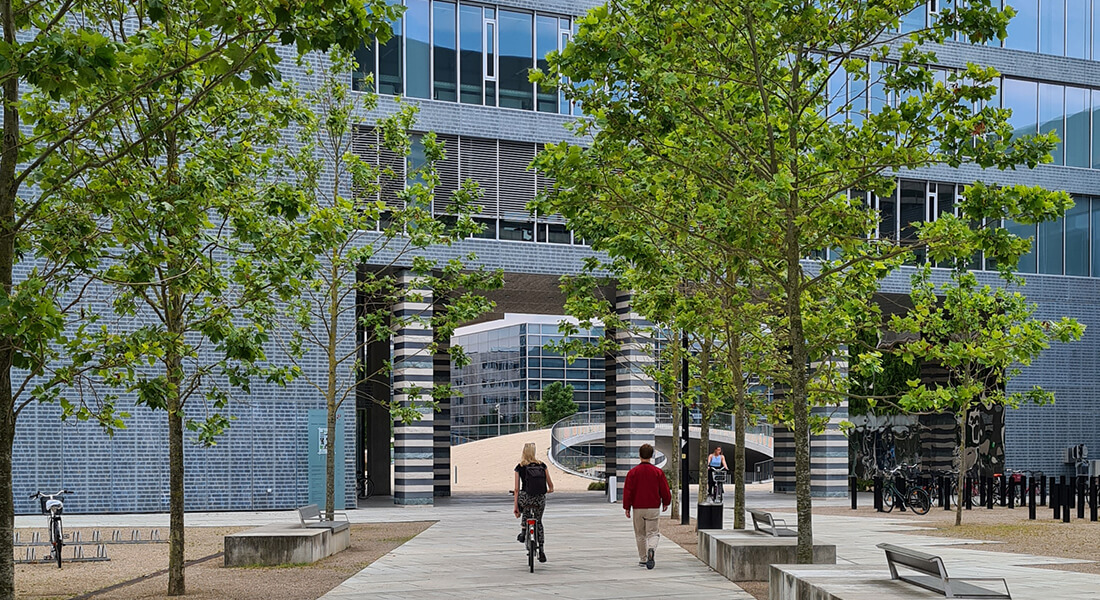Centre for the Study of Religion in Society, Culture and Law (SCALA)
SCALA is an interdisciplinary research and education hub within the Faculty of Theology.
 Its members investigate how religions are understood, produced, and recognized across historical periods, cultural contexts, and in contemporary societies and states.
Its members investigate how religions are understood, produced, and recognized across historical periods, cultural contexts, and in contemporary societies and states.
SCALA is an interdisciplinary hub for research and education on religion in history, culture, society, and law. We explore how religions are known, produced, and recognized – historically, culturally and in contemporary societies and states.
The Centre brings together scholars, students, and collaborators to advance knowledge, build international partnerships, and deepen public engagement.
Our work is organised across three key areas.
- Religion in History and Culture, which examines the role of religion in shaping historical and cultural developments.
- Religion in Society and Community, which investigates how religious beliefs, practices, and institutions both shape and are shaped by social, political, and cultural life .
- Religion in State and Law, which studies how religion is produced, governed, and recognized within legal and political systems.
This area examines how religion is embedded in, shapes, and is shaped by cultural contexts—spanning the arts, literature, intellectual traditions, and social practices. It focuses on evolving concepts of religion and the changing relations among Jews, Christians, Muslims, and other religious traditions. The research highlights how these interactions have influenced history, identity, and perceptions across time.
Head of Area: Professor Jan Loop serves at the University of Copenhagen, specialising on the shared history of Islam, Judaism and Christianity. He is Principal Investigator in the ERC Synergy Grant project The European Qur'an and a co-leader of the international initiative Recognizing Religions. His work bridges religious studies and cultural history, illuminating how religious ideas and texts circulate and transform across contexts.
This area studies how religious beliefs, practices, and institutions both shape and are shaped by social, political, and cultural life. Approaching religion as a dynamic, lived experience, public discourse, and global affairs, it employs interdisciplinary methods to examine intersections with identity, aesthetics, power, ethics, and belonging across historical and contemporary contexts.
Head of Area: Associate Professor Jesper Petersen leads the “Non-Muslim Islam” research project, funded by the Sapere Aude grant. His anthropological work focuses on how Islam is produced and consumed by non-Muslims. Petersen also researches Islamic feminism, LGBTQ-Islam, and Danish Muslims’ Sharia practices, grounding his insights in fieldwork and ethnographic methods.
This area investigates how religion is produced, governed, and made knowable within legal and state frameworks. It analyzes how states engage with religious communities via legislation, administrative policies, judicial rulings, and symbolic resources—especially regarding Islam in European contexts. The aim is to foster interdisciplinary dialogue and deliver empirically grounded, conceptually rigorous insights into religion’s evolving role in law and governance.
Head of Area: Associate Professor Niels Valdemar Vinding holds his position at the University of Copenhagen's Faculty of Theology. He chaired the project Producing Sharia in Context (2021–2025), funded by the Danish Independent Research Fund, which investigates how sharia—Islamic law, ethics, and practice—is shaped by and interacts with Danish and European social contexts. Among his notable works is Annotated Legal Documents on Islam in Europe: Denmark (Brill, 2020), illuminating legal frameworks surrounding Islam in Denmark.
Researchers
| Name | Title | Phone | |
|---|---|---|---|
| Loop, Jan | Professor | ||
| Petersen, Jesper | Associate Professor | +4540982529 | |
| Vinding, Niels Valdemar | Associate Professor | +4551217682 |
Funding

“Non-Muslim Islams”
PI: Jesper Petersen
Project period: 2024-2028
DFF grant no 3119-00008B,
“Exploratory Network on Law and Religion”
PI: Niels Valdemar Vinding
Project period: 2025-2028
DFF grant no 4362-00040B
